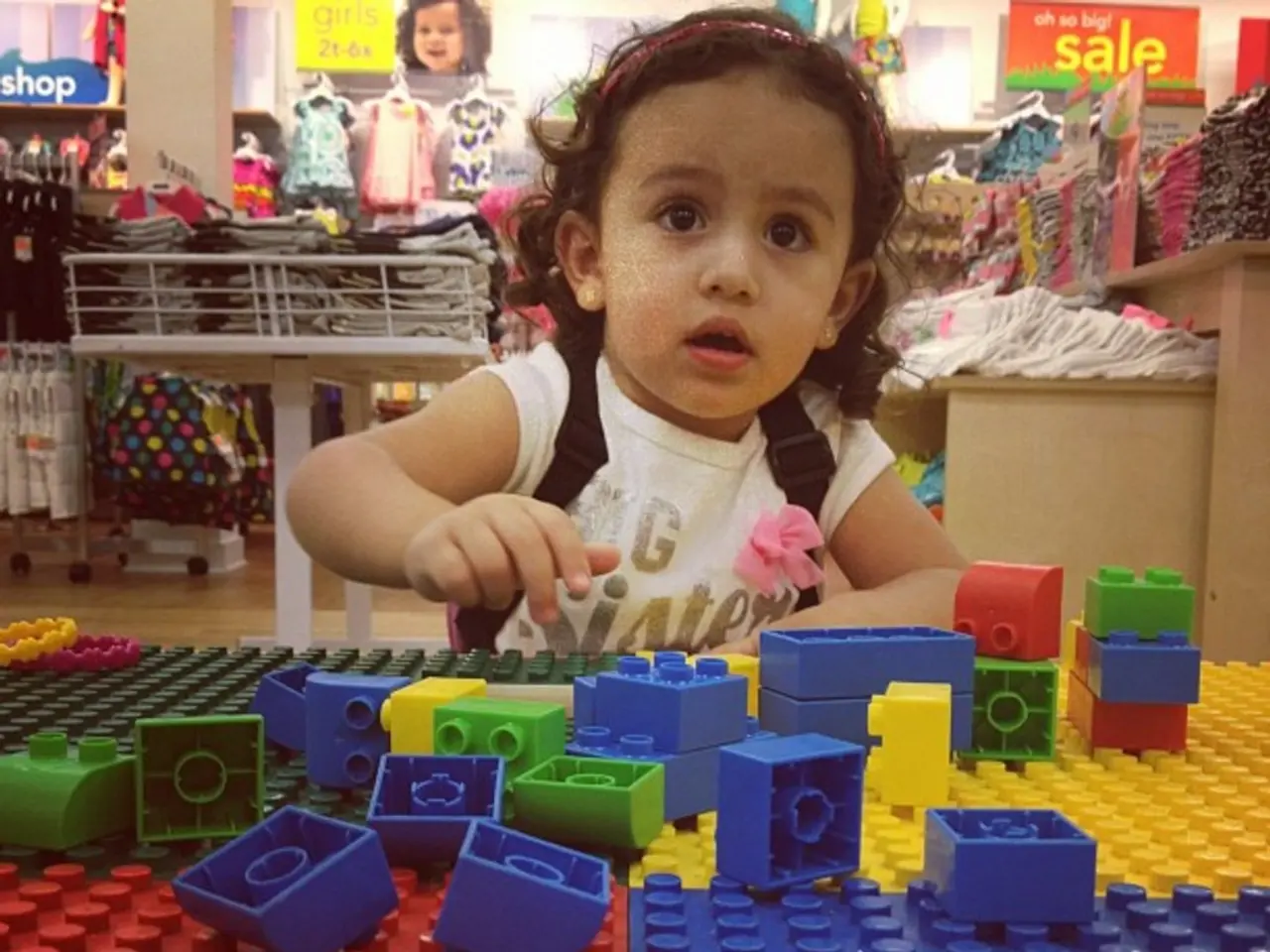Exploring the nature of play therapy: Advantages for both children and adults
Play therapy, a form of psychological treatment that involves playing with toys, role-playing, and games, has been shown to be effective in helping children with autism and other developmental disorders improve their behavioral and developmental skills [1]. However, its benefits extend beyond childhood, offering a promising approach for adults with ADHD and other mental health challenges.
Though primarily associated with child therapy, play therapy can be adapted for adolescents and adults as well [2]. This therapeutic approach encourages individuals to express emotions they might find difficult to articulate verbally, thereby improving emotional regulation [1].
For adults with ADHD, play therapy offers several key benefits:
- Emotional Expression and Regulation: By facilitating nonverbal, creative expression of complex feelings like frustration, anxiety, or hyperactivity, play therapy can help improve awareness and management of emotions [1].
- Social Skills Enhancement: Group or individual play therapy supports interaction skills and trust-building, beneficial for adults who struggle with social cues and relationship challenges common in ADHD [1].
- Problem-Solving and Coping Skills: Through therapeutic play tasks, adults can rehearse planning, organization, and flexible thinking, contributing to improved executive functioning and reduced impulsivity [1].
- Stress Reduction and Focus Improvement: Related interventions like neurofeedback-assisted games or music therapy show promise in enhancing focus, working memory, and relaxation in ADHD, indicating that interactive, play-like therapies can support attentional control [2][3].
While direct studies on play therapy for adults with ADHD are limited, evidence from child-focused research and related therapeutic modalities suggests that adapted play therapy methods can be effective in addressing ADHD challenges beyond childhood. A therapeutic relationship established via play encourages increased self-confidence and emotional resilience, which are crucial for adults managing ADHD symptoms [4].
In addition to adults with ADHD, play therapy can be beneficial for treating mental health conditions, behavioral disorders, and providing emotional support for those with neurodevelopmental differences such as autism [5]. It can also serve as a socialization tool, teaching people how to take turns and be a gracious loser or winner [6].
Play therapists, who primarily work with children, may also engage with adolescents and adults. These professionals, who may have a master's degree or higher and a license in a mental health field such as social work, counseling, or psychology, register as play therapists after completing additional coursework and clinical supervision in play therapy [7].
The APT offers a training program that gives individuals "Registered Play Therapist" status [7]. Play therapy sessions usually last 30-45 minutes [8]. Various techniques are used, including allowing a child to play with toys in three categories: real-life toys, aggressive toys, and creative toys [9]. The therapist interprets the child's play to understand their feelings.
In sand tray play, a therapist provides a child with a tray, sand, and miniature toys to create a scene or play world, which may help people who have experienced sexual abuse [10]. Older research suggests that play therapy may boost mental health in older age [11].
In conclusion, play therapy, with its experiential and engaging nature, can complement medication and cognitive-behavioral approaches by providing a unique avenue for improving self-regulation and executive functioning in adults with ADHD. Further research specifically on adults is needed to define the most beneficial modalities and protocols.
References:
- Play Therapy International
- American Psychological Association
- National Center for Biotechnology Information
- Child Mind Institute
- American Counseling Association
- Child Mind Institute
- Association for Play Therapy
- American Psychological Association
- Child Mind Institute
- National Association for Play Therapy
- National Institute on Aging
- Play therapy, initially recognized for child therapy, can be adapted for adolescents and adults, offering a contextual approach to mental health challenges and neurodevelopmental differences such as ADHD [2-7].
- By facilitating emotional expression and regulation, play therapy benefits adults with ADHD, helping them manage complex feelings like frustration and hyperactivity [1].
- Play therapy sessions, typically lasting 30-45 minutes, allow individuals to practice problem-solving and coping skills, promoting improved executive functioning and reduced impulsivity [1].
- In a therapeutic play environment, adults can interact and build trust, enhancing their social skills and relationship management, often difficult for those with ADHD [1].
- Beyond adults with ADHD, play therapy has potential applications in various health-and-wellness contexts, including mental-health therapies-and-treatments for children, adolescents, and adults with autism and other behavioral disorders [5, 6].
- Using play therapy and its diverse techniques, such as sand tray therapy, can help individuals, even those who have experienced sexual abuse or require emotional support in older age, boost mental health and resilience [10, 11].




